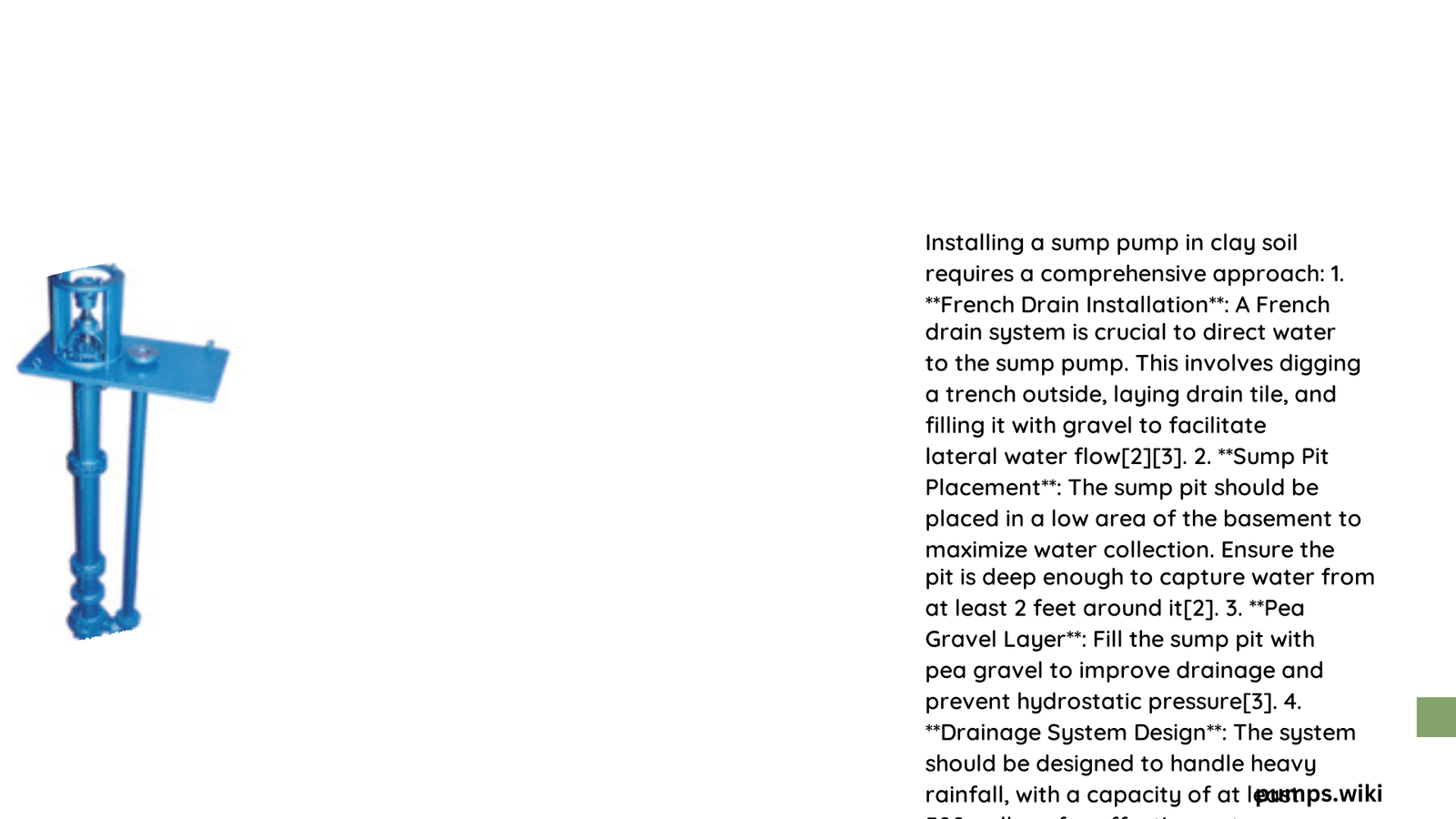Clay soil presents unique challenges for homeowners seeking effective water management. Installing a sump pump requires specialized techniques to overcome the dense, poorly draining characteristics of clay. This comprehensive guide will walk you through precise methods to successfully install a sump pump, ensuring your basement remains dry and protected from water infiltration.
Why Is Clay Soil Different for Sump Pump Installation?
Clay soil’s dense composition creates significant drainage challenges that demand a strategic approach to sump pump installation. Unlike sandy or loamy soils, clay:
- Compacts easily
- Drains water extremely slowly
- Retains moisture for extended periods
- Creates potential hydrostatic pressure issues
What Tools Will You Need for Installation?
| Tool | Purpose | Estimated Cost |
|---|---|---|
| Post Hole Digger | Excavation | $30-$80 |
| Sump Basin | Water Collection | $100-$250 |
| Gravel | Drainage Enhancement | $50-$100 |
| Concrete Mix | Stabilization | $20-$50 |
| PVC Discharge Pipe | Water Redirection | $30-$75 |
How Do You Prepare the Sump Pit in Clay Soil?

Preparing the sump pit in clay soil requires meticulous attention to detail:
- Location Selection
- Identify the lowest point in your basement
- Ensure minimal distance from exterior wall
-
Check local water table levels
-
Excavation Techniques
- Dig 24-36 inches deep
- Create diameter 6 inches larger than basin
-
Remove clay in layers to prevent compaction
-
Drainage Layer Preparation
- Add 4-6 inches of crushed stone
- Use angular gravel for better drainage
- Compact gravel carefully to prevent settling
What Pump Specifications Work Best in Clay Soil?
Recommended pump characteristics include:
- Horsepower: 1/2 HP minimum
- Discharge Rate: 2,500-3,000 gallons per hour
- Submersible Design
- Automatic Float Switch
- Cast Iron Construction
How Can You Ensure Proper Drainage?
Drainage optimization strategies:
- Install perforated drainage tiles
- Create slight slope away from foundation
- Use filter fabric around gravel
- Consider exterior French drain system
- Implement proper discharge pipe angle
What Are Common Installation Mistakes to Avoid?
Critical errors homeowners make:
- Insufficient pit depth
- Inadequate gravel base
- Poor discharge pipe routing
- Neglecting soil compaction
- Incorrect pump sizing
Cost Considerations for Clay Soil Sump Pump
Estimated Total Investment:
– Materials: $400-$800
– Professional Installation: $800-$1,500
– Total Project Range: $1,200-$2,300
Maintenance Tips for Long-Term Performance
- Inspect pump quarterly
- Clean basin annually
- Test backup battery system
- Check discharge pipe for blockages
- Monitor foundation moisture levels
Final Recommendations
Professional consultation is strongly recommended for complex clay soil environments. Local geological surveys can provide additional insights into your specific drainage challenges.
Pro Tip: Consider geotechnical assessment before installation to understand unique soil characteristics.
Warning Signs of Improper Installation
- Recurring basement moisture
- Pump cycling too frequently
- Unusual grinding noises
- Visible soil erosion
- Water pooling near foundation
Conclusion
Successful sump pump installation in clay soil demands precision, proper equipment, and strategic planning. By following these comprehensive guidelines, homeowners can effectively manage water drainage and protect their property’s structural integrity.
